Azerbaijan: The Fortune Teller of Baku
Superstition is deeply rooted in the culture of Azerbaijan. But how much truth is hidden in fortune telling? For some, the answer is a frightening experience.
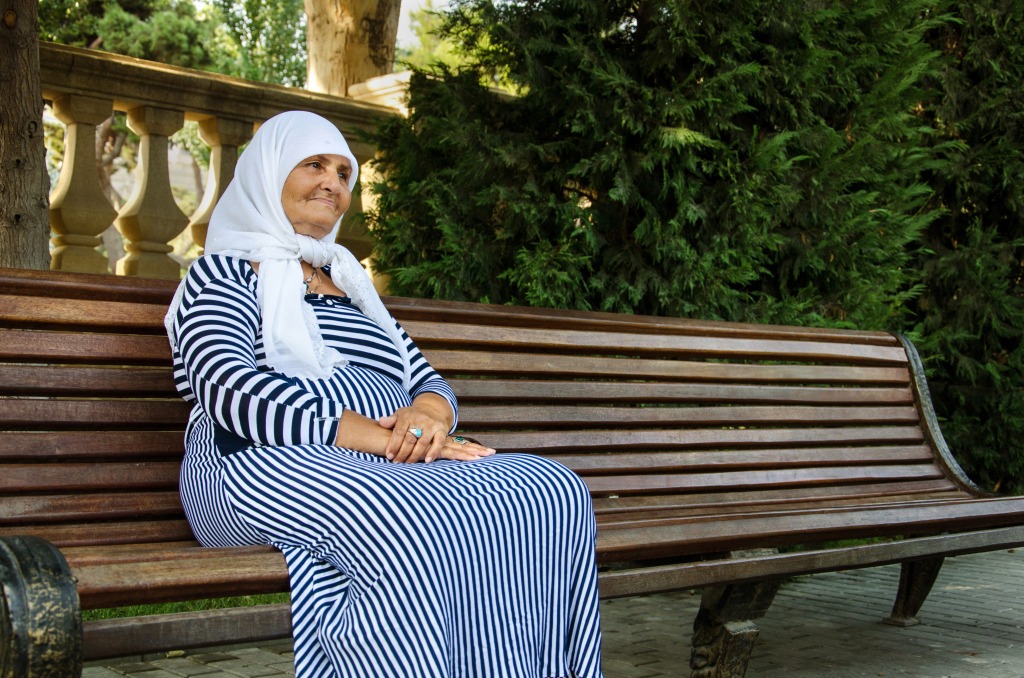
Sparrows fly through the air, twittering excitedly. Stray pairs of romantic couples sit in the shadows. A cigarette seller chews absentmindedly on a drinking straw under a tree. Otherwise, there’s barely any movement on the waterfront in Baku Azerbaijan. It is 3pm on a hot summer’s day here in the Azerbaijani capital. People who know what’s good for them do not leave the house at this time.
Azerbaijan, and most of all Baku, have gone through massive changes in the last few decades, thanks to the burning gas sources. New buildings are shooting up from the ground like mushrooms. With the modern Crystal Hall event arena, the iconic Flame Towers and the elegant Heydar Aliyev Cultural Centre, one architectural masterpiece is followed by another. The locals are particularly proud of the latter, based on the design of the recently deceased Iraqi-British architect Zaha Hadid. There’s no doubt the image of Baku has a shining future ahead. Yet the former trade centre on the Silk Route holds tightly onto its traditions – maybe even to a superstitious extent.
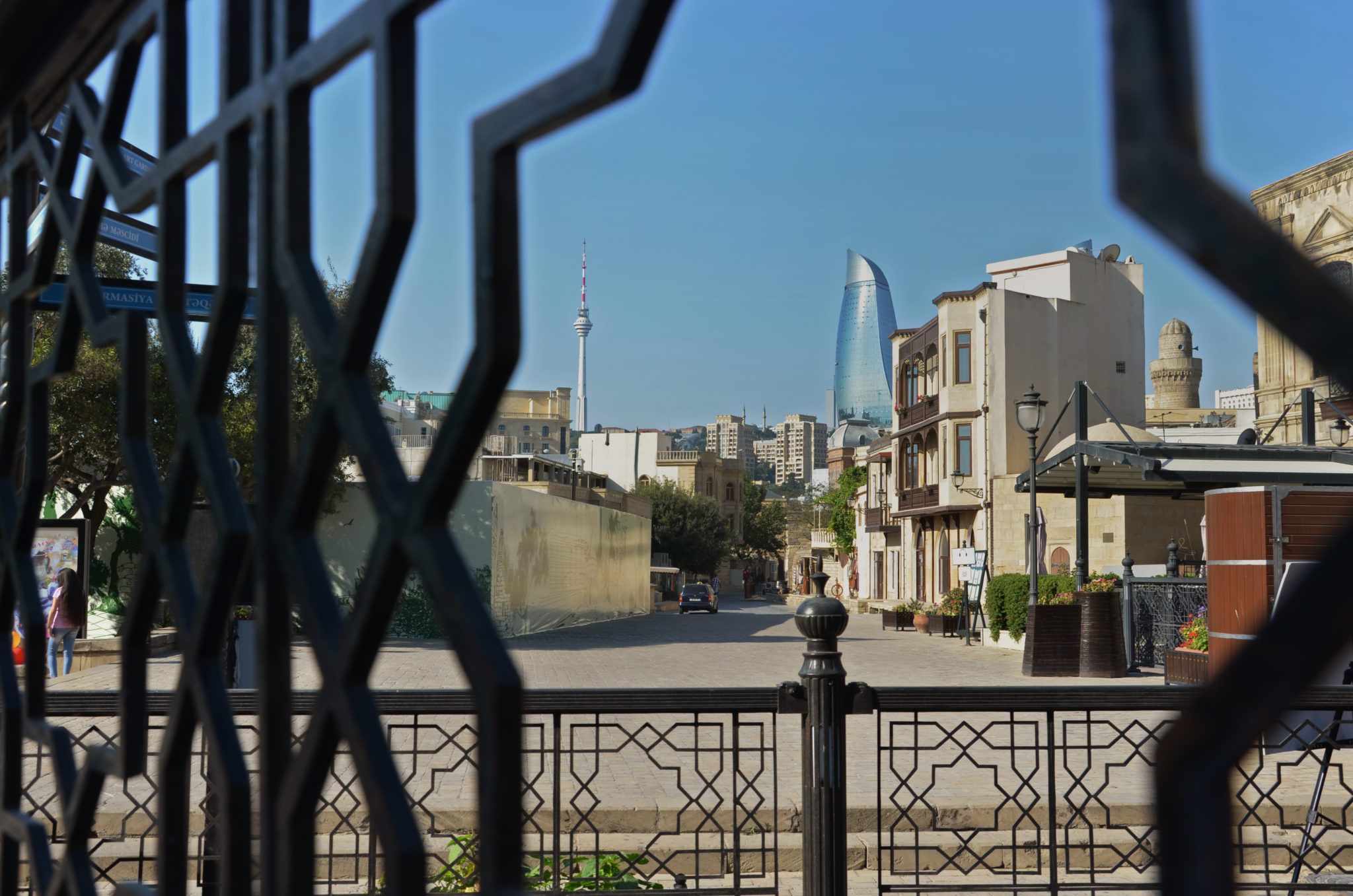
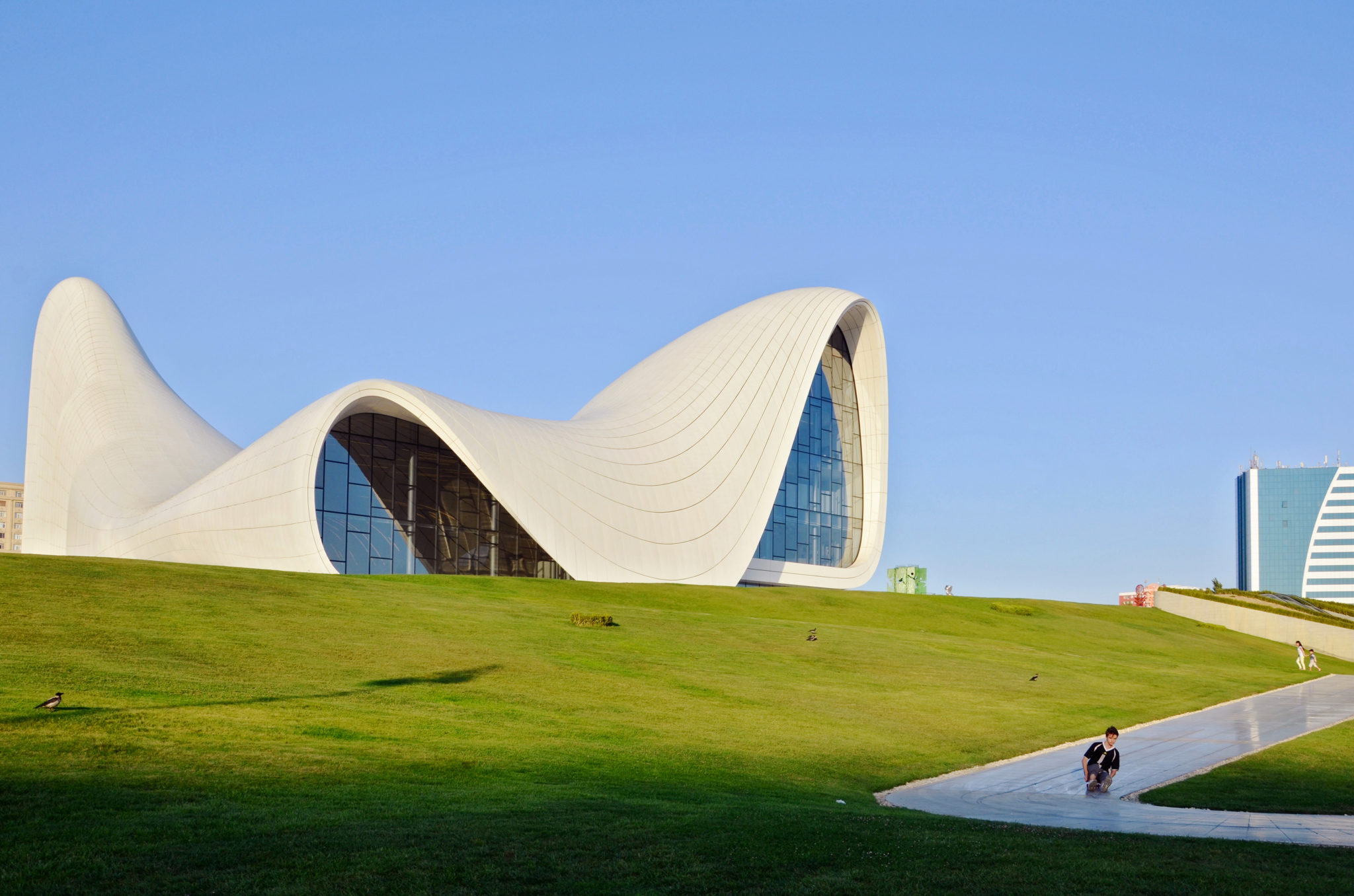
We meet Adilja on the promenade, which is as deserted as it would be during Ramadan. With short but mighty steps she makes her way up out of the metro station. The old lady definitely has some years under her belt, which is clear to see from her bent posture and suntanned face infused with deep wrinkles. However, she is far from the image of a mystic lady with a glass eye, crystal ball and a big wart on her face.
From the fig tree into the heart of glittering Baku
Her hair is hidden under a glittering headscarf, fashionably matching her long, striped dress. You can’t deny she’s got a certain aura. In fact, even without having ever seen her before, you get the feeling you know her from somewhere. Above all, there’s her mischievous grin, which can be seen from a mile off. At least her own future looks rosy.
Adilja is a fortune teller and has been even before Baku came into its own. Normally, she doesn’t do business in the capital, but at Besh Barmag, the legendary five-fingered mountain 90km away. She is reluctant to have left the local shadows of the old fig tree, she tells us, which makes us feel a bit bad.
Ahmet, our interpreter, had personally invited her to Baku, meaning she had to make an arduous journey by bus and metro. We can only hope this doesn’t have any negative influence on our fortune.

To our surprise, she greets us with wet kisses on the cheeks. We then walk a few metres along the promenade. Instinctively, we slow down to match the old woman’s pace. Ahmet translates our first attempts to get closer and is visibly nervous. We want to know if Adilja has had a good day. Yes, she has. We thank her politely for coming. Then the subject changes.
Knowing people without knowing people
For the 68-year-old, fortune telling is not just a profession but a calling and gift that she discovered as a child – from no other than the Prophet Mohammed who came to her in a dream, she says proudly. Since then, they’ve been working closely together. Fortune telling is no joke, after all. A smile appears on her face, which only adds to the story like a cherry on a wedding cake. This won’t be the first time we glimpse it during our encounter.
The sprightly woman lowers herself onto a bench and invites us with a nod to join her. Ahmet stays standing, dedicated to carrying out his role as interpreter as accurately as possible. First of all, she wants to know my name. Adilja says that I was very gifted, even as a child. A long journey awaits me, as well as a beautiful girlfriend and a marriage. I also have a good, strong character, she continues, and I always try to do everything myself.
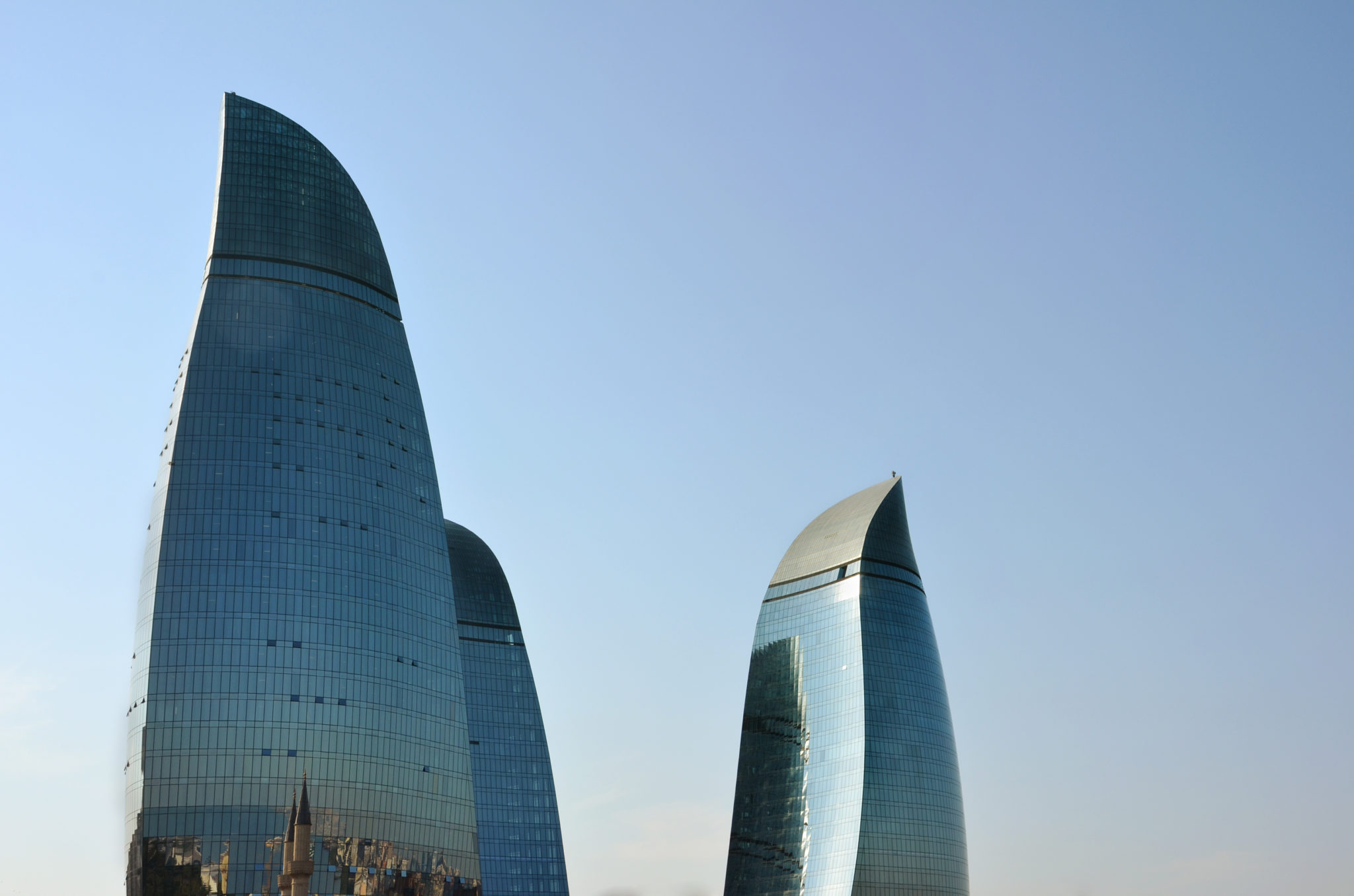
Her next assumption is wrong, however – she says I do a lot of sport. I’m now beginning to see where superstition falls flat. Still, I listen to her words and Ahmet’s hectic translations. Then out of nowhere, she predicts something that leaves me paralysed in terror: she says that as a child, I swam in the sea but it was difficult. This is my Achilles’ heel. As a boy, I almost drowned in 1989 on a family holiday in Spain. While swimming, I fell into a deep hole at the bottom of the sea, which threatened to suck me under like a whirlpool. Thanks to my father, I came out unscathed – aside from the shock that I have carried with me from this far-off experience. I am speechless. How did she know about this? I’ve never written it down, nor told anyone else about it. I start to feel a little uneasy.
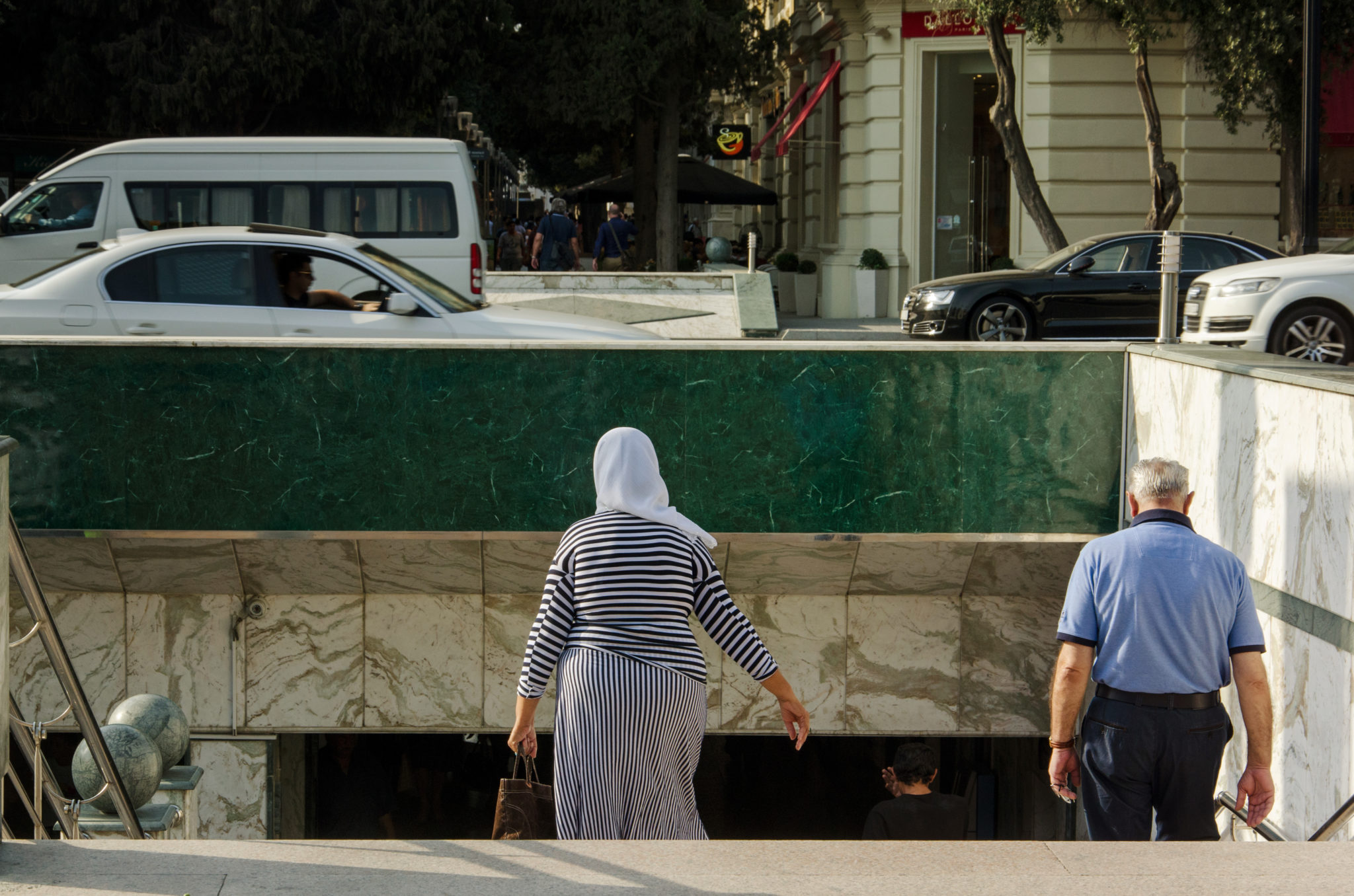
A look into the future of Baku?
The fortune teller seems to sense this, given the way she is looking at me. Having reached her peak, she refuses all other questions. The view into the rosy future was followed by a glance into the past. That was it. Lost in thought, I remain silent.
We start to make our way back along the promenade in Baku Azerbaijan. The afternoon is coming to a close. Streets are gradually filling up with cars and pedestrians, with them the occasional peal of laughter accompanying the twittering of sparrows. The Flame Towers sparkle in solitude over Baku as we reach the metro station. Once again, there is a hug and a kiss on the cheek. This time, though, it feels more intimate.
As we bid farewell, I ask whether she can see the future of Azerbaijan. And as so many times before, the corners of her mouth rise until there it is – her special, mischievous grin. Adilja, the fortune teller of Baku, gradually disappears into the underground of the glittering city.

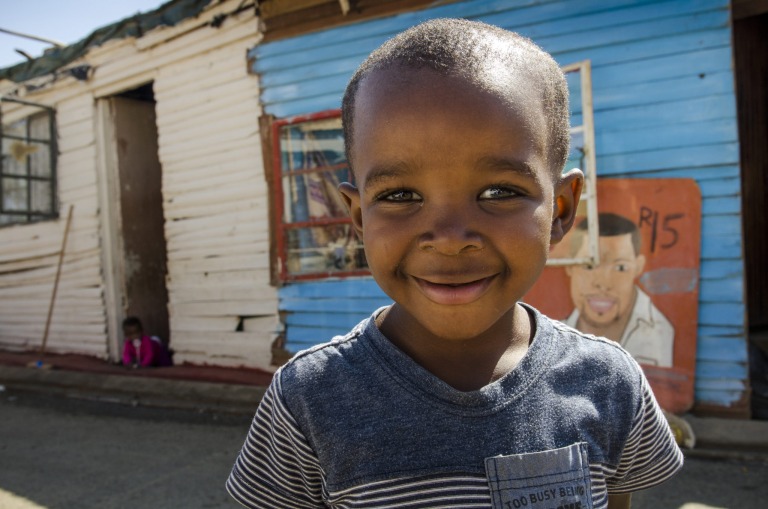

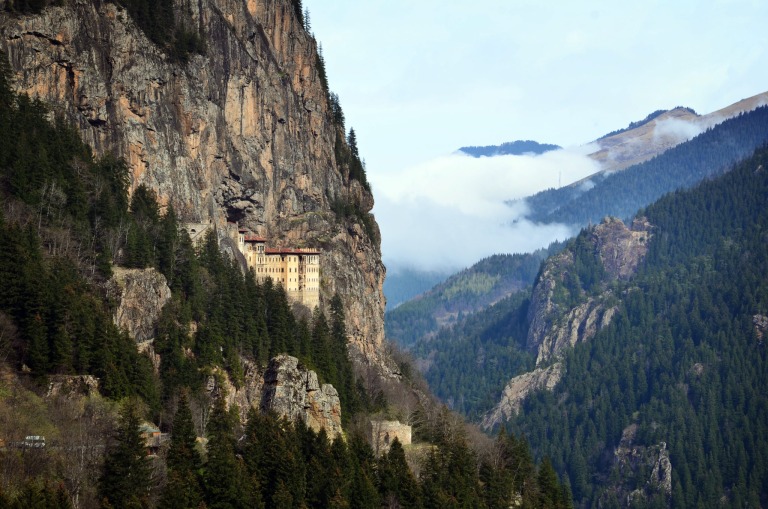
No comments yet.
Be the first to comment on this post!